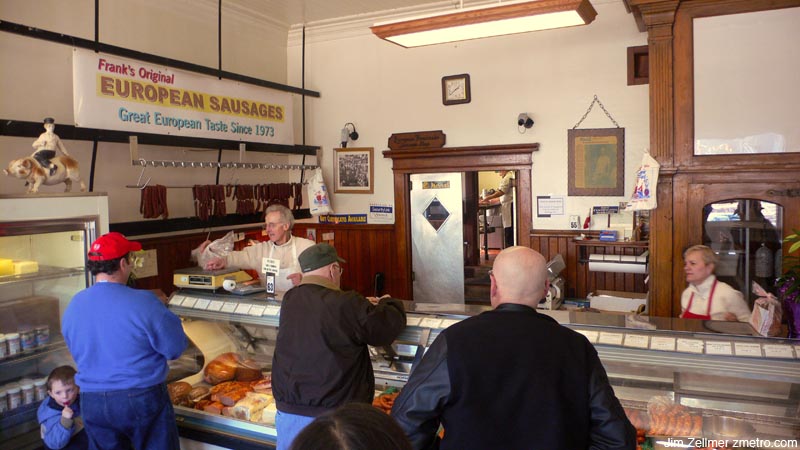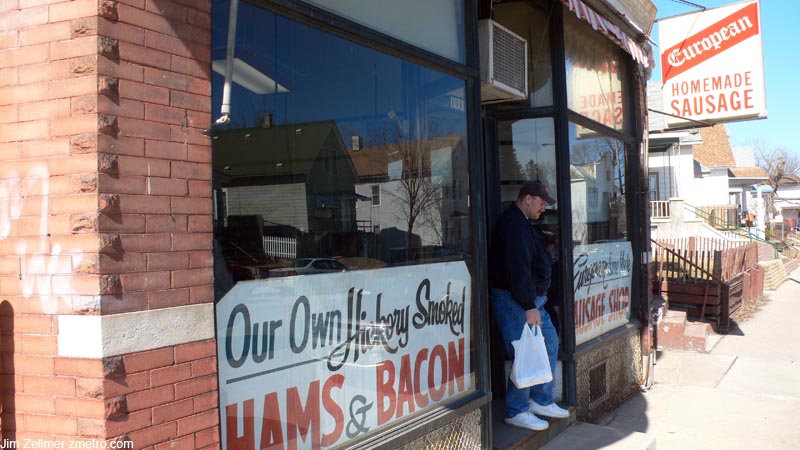Just when I was getting used to the idea that a euro should cost $1.20, our dollar plummets 20 percent, and now a euro costs $1.55. Don’t expect our currency to recover any time soon because, frankly, we’re not as rich as we think we are.
But 12 million Americans – the vast majority of them normal working people – had a blast in Europe in 2007. So don’t mope. Just get smart and stretch that wimpy little dollar. To help you keep your travel dreams affordable in 2008, here are ways you can take back that 20 percent drop in your dollar’s value – and have a more rewarding trip.
1. A bed and breakfast offers double the warmth and cultural intimacy for half the price of a hotel. You’ll find them in most countries if you know the local word: Husrom is Norwegian for sobe, which is Slovenian for Zimmer, which is German for bed and breakfast (literally, “room”). In Haarlem, in the Netherlands, I save 33 percent by staying a 10-minute walk from the center and paying 55 euros for a double room with a shower, rather than on the square in the cheapest hotel in town, which runs 85 euros for a double with shower.
My Trust in My Lord
Look: I believe in Him. It’s that simple and that complex. I believe in Jesus Christ, the Second Person of the Blessed Trinity, the God Man who came to earth, born as a tiny baby and then lived over thirty years in our midst. I believe in what we celebrate this week: the scandal of the cross and the miracle of the Resurrection. My belief is total. And I know that I cannot convince anyone of it by reason, anymore than an atheist can convince me, by reason, that there is no God.
A long life of historical study and biblical research led me to my belief, and when faith returned to me, the return was total. It transformed my existence completely; it changed the direction of the journey I was traveling through the world. Within a few years of my return to Christ, I dedicated my work to Him, vowing to write for Him and Him alone. My study of Scripture deepened; my study of New Testament scholarship became a daily commitment. My prayers and my meditation were centered on Christ.
And my writing for Him became a vocation that eclipsed my profession as a writer that had existed before.
Why did faith come back to me? I don’t claim to know the answer. But what I want to talk about right now is trust. Faith for me was intimately involved with love for God and trust in Him, and that trust in Him was as transformative as the love.
Clusty Search: Anne Rice.
Milwaukee Art Museum VR Scene

Click for a full screen VR view.
There are some flaws in this hand held scene, but it’s a pleasant view of a spectacular space, particularly the day before our latest snowstorm.
Scenes

Ho Chunk Honeys?
A Superb Easter Ham
Lessig Launches Change Congress 3/20/2008
Via email:
Colorado Congressman Wayne Allard has taken over $45,900 from ConAgra
Food Corporation and over $405,000 from the oil and gas industry. His campaign is fueled by over $3.6 million in PAC contributions. He is just one example of a problem that affects members of both parties. And just one example of why the system in Washington D.C. puts special interests before the American people.
That system will not change on its own. It will only change if people like you and me stand up and fight for it.
A month ago I considered running for Congress to help bring about this change from the inside. Many of you supported the idea and urged me to run. After thinking very hard about whether such a campaign
could win, I decided against it. And instead I am asking you to join me in a new grassroots effort to Change Congress.
Learn more here.
Great VR Photography Site
Robert Serra offers up some beautiful and unique vr scenes, including a dishwasher interior shot.
Let’s Talk About Your Big But But
My December 31, 2007, blog entry was called What Do You Listen For? I wrote that if you listen for errors and offense, you will find them, but if you listen for truth and meaning, you will find them instead.
How can you tell when someone is not listening for truth and meaning? One sign is the word, “but,” which suggests one has listened only for something to contradict. The Entrepreneurial Investor co-author Dean Zatkowsky calls the expression “yeah, but…” a “reflexive rebuttal,” a knee-jerk need to trump another’s point with one of your own.
Tibet: Fire on the Roof
THE Chinese authorities had been fearing trouble, but nothing on this scale. An orgy of anti-Chinese rioting convulsed the Tibetan capital, Lhasa, on Friday March 14th, leaving security forces uncertain how to respond. For many hours mobs controlled the streets, burning and looting as they pleased.
The approach of Beijing’s Olympic games in August is seen by many of Lhasa’s residents as an opportunity to put their contempt for Chinese rule on display to the outside world. China’s desire to ensure the games are not marred by calls for boycotts is tying its hands as it considers how to respond.
Your correspondent, the only foreign journalist with official permission to be in Lhasa when the violence erupted, saw crowds hurling chunks of concrete at the numerous small shops run by ethnic Chinese lining the streets of the city’s old Tibetan quarter. They threw them too at those Chinese caught on the streets—a boy on a bicycle, taxis (whose drivers are often Chinese) and even a bus. Most Chinese fled the area as quickly as they could, leaving their shops shuttered.
So, the Fed is in the Mortgage Business?
Apparently, Britney has some shaky assets on her balance sheets. Well, don’t worry Britney. You’re not the only one.
In an announcement that has sent produced a large and varied reaction, the FED has announced that they will attempt to bail out banks by letting them use mortgage-backed securities as collateral for loans. This move is unprecedented in the Fed’s history. For the first time, they are entering the mortgage business. Since its inception, the Fed has used open market operations (the buying and selling of treasury bonds) to expand or contract the monetary policy. A good detailed discussion is here, at interfluidity. Simplistically, the Fed’s balance sheet looks like:
A Bailout, for Everyone by Steven Pearlstein:
Last week, it was a $200 billion cash-for-bond swap for the banks.
This week, it was a $200 billion bond-for-bond swap for the big investment houses.
If they keep this up, pretty soon you’ll be able to walk into any Federal Reserve bank and hock that diamond brooch you inherited from Aunt Mildred.
Forget all that nonsense about the Bernanke Fed being too timid or behind the curve. In the face of what is turning into the most serious financial market crisis since the Great Depression, the Fed has been more aggressive and more creative in using its limitless balance sheet — in effect, its ability to print money — than at any time in history.
We can argue till the cows come home about whether this is a bailout for Wall Street. It is — but only to the extent that it is also a bailout for all of us, meant to prevent a financial and economic meltdown that drags everyone down with it. In broad strokes, we’re going through a massive “de-leveraging” of the economy, wringing out trillions of dollars of debt that had artificially driven up the price of real estate and financial assets, and, more generally, allowed Americans to live beyond their means. The Fed’s goal has not been to impede that process, simply to make sure that it proceeds in an orderly fashion. But even that has required central bank intervention that is unprecedented in scale and scope. And despite yesterday’s huge rally in the stock market, Fed officials warn that this de-leveraging is nowhere near finished.


